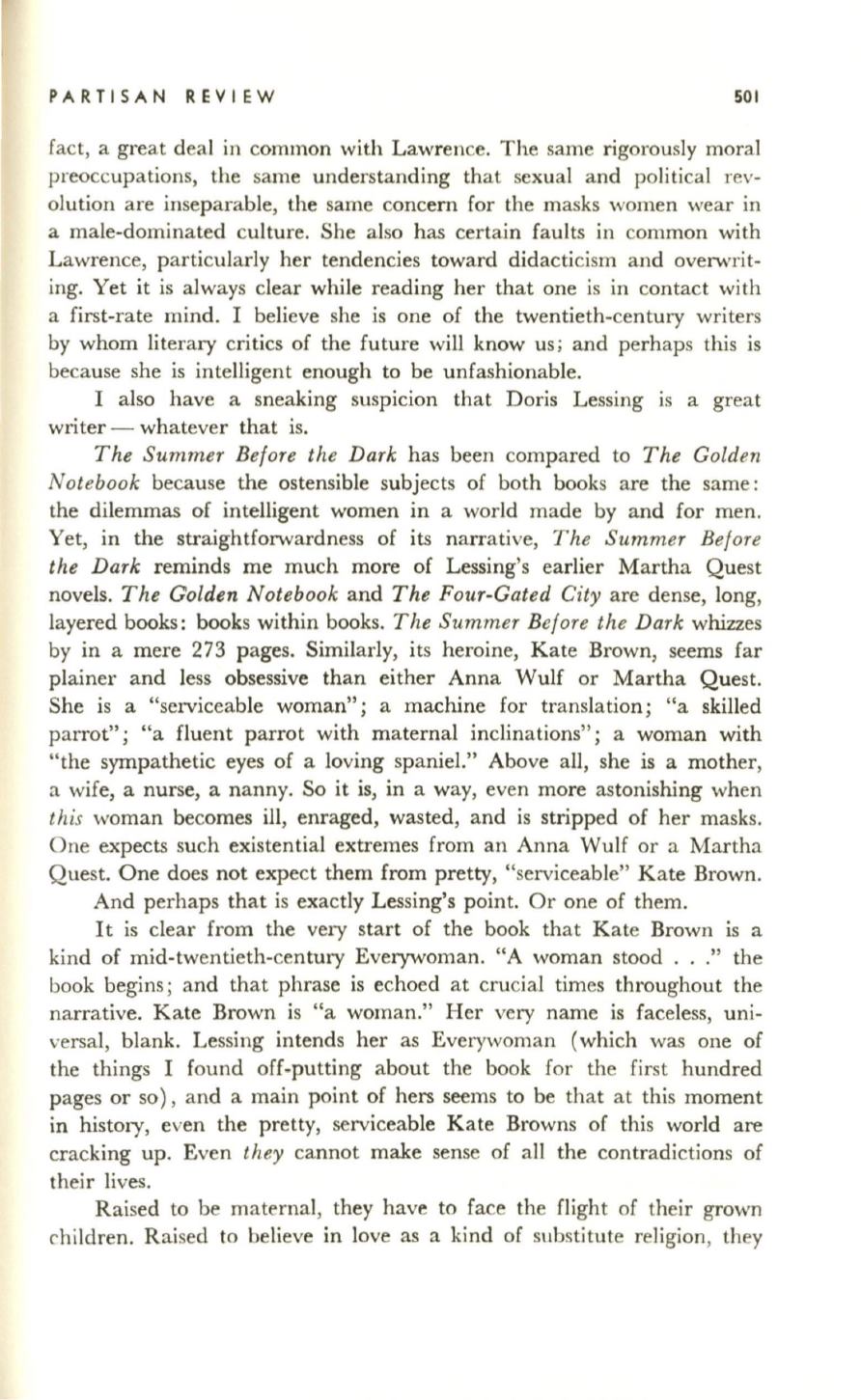
PARTISAN REVIEW
501
fact, a great deal in common with Lawrence. The same rigorously moral
preoccupations, the same understanding that sexual and political
rev–
olution are inseparable, the same concern for the masks women wear in
a male-dominated culture. She also has certain faults in common with
Lawrence, particularly her tendencies toward didacticism and overwrit–
ing. Yet it is always clear while reading her that one is in contact with
a first-rate mind. I believe she is one of the twentieth-century writers
by whom literary critics of the future will know us; and perhaps this is
because she is intelligent enough to be unfashionable.
I also
have
a sneaking suspicion that Doris Lessing is a great
writer - whatever that is.
The Summer Before the Dark
has been compared to
The Golden
Notebook
because the ostensible subjects of both books are the same:
the dilemmas of intelligent women in a world made by and for men.
Yet, in the straightforwardness of its narrative,
The Summer Before
the Dark
reminds me much more of Lessing's earlier Martha Quest
novels.
The Golden Notebook
and
The Four-Gated City
are dense, long,
layered books: books within books.
The Summer Before the Dark
whizzes
by in a mere 273 pages. Similarly, its heroine, Kate Brown, seems far
plainer and less obsessive than either Anna Wulf or Martha Quest.
She is a "serviceable woman"; a machine for translation; "a skilled
parrot"; "a fluent parrot with maternal inclinations"; a woman with
"the sympathetic eyes of a loving spaniel." Above all, she is a mother,
a wife, a nurse, a nanny. So it is, in a way, even more astonishing when
this
woman becomes ill, enraged, wasted, and is stripped of her masks.
One expects such existential extremes from an Anna Wulf or a Martha
Quest. One does not expect them from pretty, "serviceable" Kate Brown.
And perhaps that is exactly Lessing's point. Or one of them.
It is clear from the very start of the book that Kate Brown is a
kind of mid-twentieth-century Everywoman. "A woman stood ..." the
book begins; and that phrase is echoed at crucial times throughout the
narrative. Kate Brown is "a woman." Her very name is faceless, uni–
versal,
blank. Lessing intends her as Everywoman (which was one of
the things I found off-putting about the book for the first hundred
pages or so), and a main point of hers seems to be that at this moment
in history, even the pretty, serviceable Kate Browns of this world are
cracking up. Even
they
cannot make sense of all the contradictions of
their
lives.
Raised to be maternal, they have to face the flight of their grown
children. Raised to believe in love as a kind of substitute religion, they


